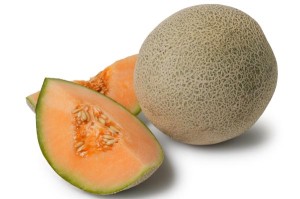Audits and inspections set a food safety minimum.
The best farmers, processors and retailers will go far above and beyond what is required by minimal standards.
Coral Beach of The Packer reports that following a meeting with some family members of victims of the 2011 listeria outbreak linked to cantaloupe from their farm, Eric and Ryan Jensen signed over a lawsuit they filed against Primus Labs to the victims.
Attorney Bill Marler, who represents 46 of the 64 victims and their families who have filed civil suits against the Jensen brothers, said Nov. 21 that he  would soon file a notice of appearance in Colorado state court in the case against the Santa Maria, Calif., auditing firm.
would soon file a notice of appearance in Colorado state court in the case against the Santa Maria, Calif., auditing firm.
By “assigning” the case to the victims, the Jensens have basically taken themselves out of the lawsuit against Primus Labs, Marler said. Now he and the other lawyers representing victims in civil cases against the Jensens will prosecute the Colorado case against Primus Labs.
Any settlement in the Primus Labs case will be divided among the victims, Marler said. He said he could not estimate how long it would take to resolve the case. Marler will continue to represent 46 clients who have filed civil suits against the Jensens.
In the suit against Primus Labs, the Jensen brothers contend the auditing firm should be liable for damages related to the 2011 listeria outbreak that killed at least 33 people.
The Jensens hired Primus Labs to do a food safety audit of their operation, but the company paid a third-party contractor to do the job.
Bio Food Safety, a Texas company, sent auditor James Dilorio to Jensen Farms, Holly, Colo., on July 25, 2011, according to the Jensens’ complaint.
Dilorio gave the Jensens’ operation a score of 96 out of 100. He did not raise questions about numerous issues that the Food and Drug Administration cited in its inspection report on the Jensens’ farm and packing facility after the deadly outbreak.
• food safety audits and inspections are a key component of the nation’s food safety system and their use will expand in the future, for both domestic and imported foodstuffs, but recent failures can be emotionally, physically and financially devastating to the victims and the businesses involved;
• many outbreaks involve firms that have had their food production systems verified and received acceptable ratings from food safety auditors or government inspectors;
• while inspectors and auditors play an active role in overseeing compliance, the burden for food safety lies primarily with food producers;
• there are lots of limitations with audits and inspections, just like with restaurants inspections, but with an estimated 48 million sick each year in the U.S., the question should be, how best to improve food safety?
• audit reports are only useful if the purchaser or food producer reviews the results, understands the risks addressed by the standards and makes risk-reduction decisions based on the results;
• there appears to be a disconnect between what auditors provide (a snapshot) and what buyers believe they are doing (a full verification or  certification of product and process);
certification of product and process);
• third-party audits are only one performance indicator and need to be supplemented with microbial testing, second-party audits of suppliers and the in-house capacity to meaningfully assess the results of audits and inspections;
• companies who blame the auditor or inspector for outbreaks of foodborne illness should also blame themselves;
• assessing food-handling practices of staff through internal observations, externally-led evaluations, and audit and inspection results can provide indicators of a food safety culture; and,
• the use of audits to help create, improve, and maintain a genuine food safety culture holds the most promise in preventing foodborne illness and safeguarding public health.
Audits and inspections are never enough: A critique to enhance food safety
Food Control
D.A. Powell, S. Erdozain, C. Dodd, R. Costa, K. Morley, B.J. Chapman
http://www.sciencedirect.com/science/article/pii/S0956713512004409?v=s5
Abstract
Internal and external food safety audits are conducted to assess the safety and quality of food including on-farm production, manufacturing practices, sanitation, and hygiene. Some auditors are direct stakeholders that are employed by food establishments to conduct internal audits, while other auditors may represent the interests of a second-party purchaser or a third-party auditing agency. Some buyers conduct their own audits or additional testing, while some buyers trust the results of third-party audits or inspections. Third-party auditors, however, use various food safety audit standards and most do not have a vested interest in the products being sold. Audits are conducted under a proprietary standard, while food safety inspections are generally conducted within a legal framework. There have been many foodborne illness outbreaks linked to food processors that have passed third-party audits and inspections, raising questions about the utility of both. Supporters argue third-party audits are a way to ensure food safety in an era of dwindling economic resources. Critics contend that while external audits and inspections can be a valuable tool to help ensure safe food, such activities represent only a snapshot in time. This paper identifies limitations of food safety inspections and audits and provides recommendations for strengthening the system, based on developing a strong food safety culture, including risk-based verification steps, throughout the food safety system.
